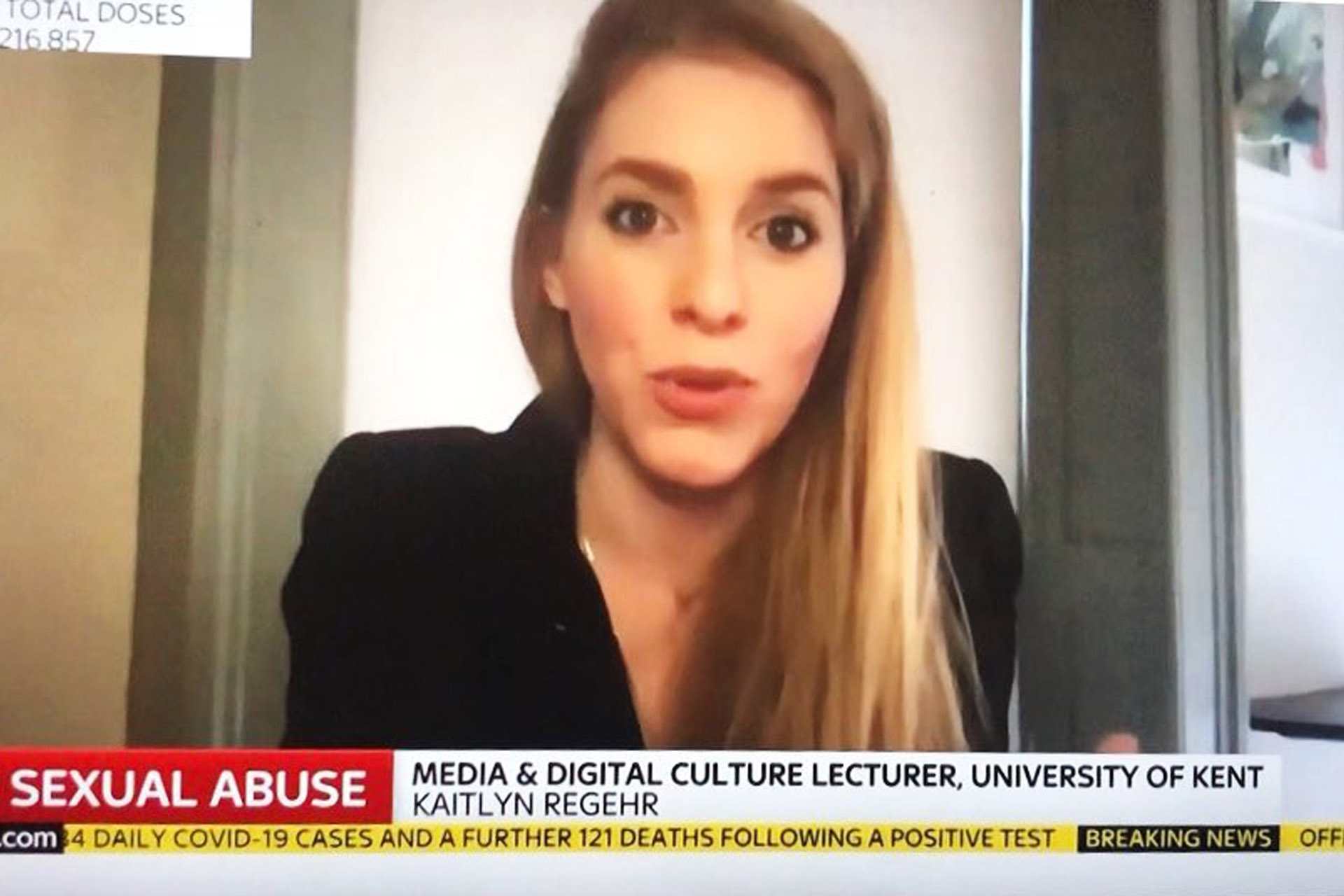Senior Lecturer in Media and Digital Culture, Dr Kaitlyn Regehr, was interviewed on Sky News on Saturday afternoon. During the interview, Dr Regehr discussed women’s safety; a movement which has been brought to the centre stage by women across the country, following the Sarah Everard tragedy.
Dr Regehr explains that during the interview, “I spoke more broadly to ideas of women’s safety and what this needs to look like. I really advocate that in order to make women safe on the streets, we also have to help women become safe on screens too. It’s one thing to improve streetlighting, but there are basic things like turning off your geolocator on snapchat or thinking about how you use running apps.
I think by having a real conversation about what’s happening, we can start to tackle these so-called minor offences that act to normalise, and act as gateways into more substantial forms of abuse as we tragically saw in the current case. The individual flashed a woman and was charged with flashing three days before and remained an armed member of service.”
Dr Regehr’s interview on Sky was filmed and aired prior to the events that took place on Saturday night. Dr Regehr adds, “I don’t think we can underestimate the trust that was lost on Saturday. I think it was a tremendous misjudgement at best, and at worst, an abuse of power.”
Dr Regehr is currently working on a research project with Jessica Ringrose, Professor of Sociology of Gender and Education at University College London, on image-based abuse, and image sharing in youth cultures. As part of this project, Dr Regehr and Professor Ringrose interviewed 170 students across the country including a group from the University of Kent. The students involved were primarily in secondary schools, ranging from highly diverse inner-city schools through to the most elite boarding schools in the country. In addition to papers which will be published shortly, Dr Regehr and Professor Ringrose are working on a report with a sex education charity, School of Sexuality, who deliver digital sex education in schools across the UK.
Following Dr Regehr’s recent research, during her interview on Sky News, Dr Regehr emphasised the importance of educating young people about consent and behaviour in the digital space: “We need to be teaching young men that if you send an image of your girlfriend around the school, that is not consensual behaviour. Dismissing so-called minor offences as ‘funny’, we begin to undermine women’s experiences of sexual violence and perpetuate gateways that normalise abuse.
Projects like BBC3’s I may destroy you are a really good step in awareness building but we need to be doing that in the educational space as well.”
Language plays a huge part in the conversations that are not only occurring in the media, but also with friends and colleagues when discussing sexual assault and harassment. The language used in conversations around events and behaviour are focussed on women, but rarely in terms of the aggressor involved. Dr Regehr comments, “I think any progress we have made in the offline space around understanding it is inappropriate to say, ‘She wore a short skirt, so she deserved it’, isn’t happening in the digital space. We still say to young women in our education system, ‘You shouldn’t have sent that nude’, which is akin to victim blaming. Instead, we need to teach young men that it is non-consensual to share intimate images [to friends]; this constitutes Image Based Sexual Abuse (IBSA).
There is of course more work to be done but there has been some progress in the offline space around issues of consent in the post ‘me too’ era. Reference points around language – we need to transfer that to the digital space too.”

